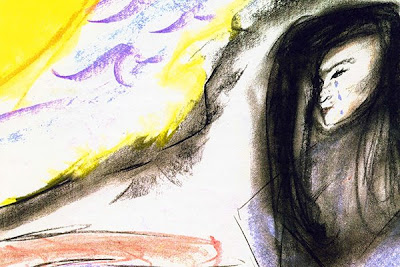
Distress gets its share of headline news these days, yet there is another kind of stress worthy of attention: Eustress (also known as good stress). Renowned psychologist, Abraham Maslow called this kind of stress “peak experiences” a spiritual moment where you feel like you are one with the world. Eustress is any kind of experience where you feel exhilarated, inspired and happy. A whole new field of psychology had emerged from this concept: Positive Psychology. It takes a look at what’s right with human behavior (rather than Freud’s stance of what’s wrong with it). If you’ve ever heard Julie Andrews sing, “Rain drops on roses and whiskers on kittens,” then you’ll begin to have the idea of what this is all about. To see a stunning sunset, embrace a close friend whom you haven’t seen in years, to eat a favorite meal, to listen to a song that brings back enchanting memories, to stand in the presences of nature’s finest wildlife (and capture it on film), to share an exceptional experience with friends… these are some examples of eustress, and frankly, by and large we don’t have enough of these. While distress may be a part of the human experience, it doesn’t have to be the WHOLE experience. Balance is the key which is why eustress is so important.
Stress Tip for the Day:
Make a list of what brings joy in your life: Those things that make you feel happy, warm the heart and bring a smile to your face. Post this list some place where you can see it daily (and add to it as well). Make it habit to engage in one “eustress moment” each day (even if it’s brief moment). You will find that by looking for “raindrops on roses” you will begin to attract more of these moments into your life and achieve the balance toward inner peace.
• Website Links Worth Noting:
As you many know, Disney has repackaged the BBC Planet Earth series into a major motion picture called earth. They plan to release another movie next April (on Earth Day) on life under the sea. Here is a link to the preview which in and of itself is inspiring.
http://www.apple.com/trailers/disney/oceans/large.html
• Photo of the Day:
Speaking of eustress, I was up in Kalispell, MT last weekend filming more footage for Earth Songs, a documentary film I am making on the healing power of nature. I was lucky enough to film a mountain lion, a lynx and a bobcat (as well as few more wolves). At times I was so in awe that I almost forgot to take photos. This lynx stole my heart (check out the size of his paws!) Enjoy!
• Quote for the Day:
“Life is either a daring adventure, or nothing at all.”
—Helen Keller
Brian Luke Seaward, Ph.D. is an internationally renowned expert in the fields of stress management, mind-body-spirit healing and stress and human spirituality. He is the author of over 10 books including the bestsellers, Stand Like Mountain, Flow Like Water, Stressed Is Desserts Spelled Backward, The Art of Calm, Quiet Mind, Fearless Heart and Managing Stress (6E). He can be reached through his website:www.brianlukeseaward.net
© Brian Luke Seaward, Ph.D.











